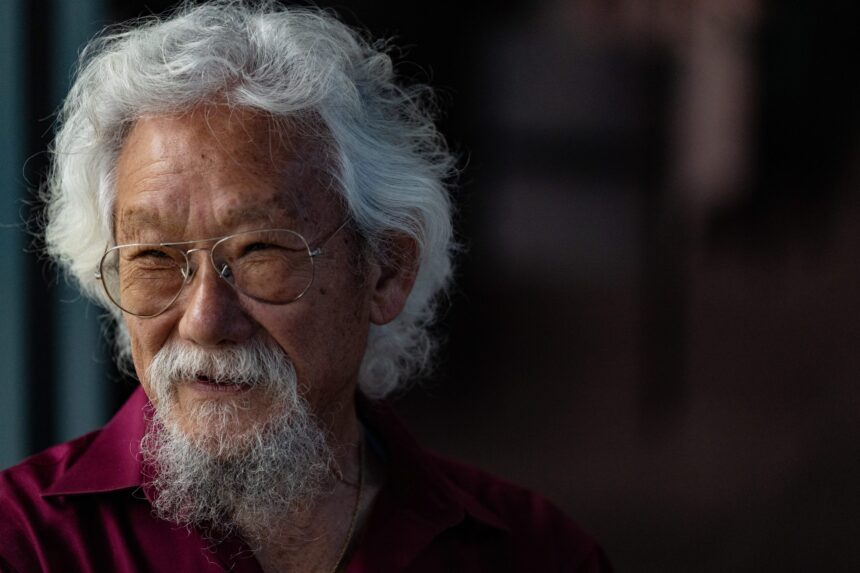In a stark departure from his decades of environmental advocacy, renowned Canadian scientist and broadcaster David Suzuki has delivered what many are calling his most pessimistic assessment yet of humanity’s climate crisis. Speaking at the University of Toronto’s climate symposium yesterday, the 89-year-old environmentalist declared that “it’s too late” to prevent catastrophic climate change, sending shockwaves through the environmental community.
“For over 40 years, I’ve been warning about the consequences of our actions on the planet,” Suzuki told the stunned audience of academics, activists, and policymakers. “The science was clear then, and it’s undeniable now. We’ve crossed critical thresholds. The fight to prevent climate change as we originally conceived it is lost.”
Suzuki’s pronouncement comes as Canada experiences its third consecutive summer of record-breaking temperatures, with British Columbia and Alberta currently battling unprecedented wildfires that have already consumed over 1.2 million hectares of forest—nearly double last year’s devastating total by this date.
The veteran environmentalist pointed to the accelerating feedback loops now observable in real-time: Arctic sea ice reaching historic minimums, permafrost thawing releasing methane at rates exceeding scientific models, and oceanic warming disrupting crucial global current systems. According to data from Environment Canada shared at the symposium, average temperatures across the Canadian north have already risen by 3.4°C since pre-industrial levels, far exceeding the global 1.5°C target established in the Paris Agreement.
“What makes this particularly devastating,” noted Dr. Catherine McKenna, former Environment Minister who also spoke at the event, “is that Suzuki has historically maintained optimism even in the face of overwhelming evidence. His shift represents a profound moment in Canada’s climate conversation.”
Despite his bleak assessment, Suzuki emphasized that his message wasn’t one of surrender but of strategic realignment. “The fight now isn’t about preventing climate change—it’s about surviving it,” he stated. “We need massive investment in adaptation strategies, climate-resilient infrastructure, and fundamentally reimagined communities.”
The scientist’s comments have drawn mixed reactions from across the political spectrum. Conservative critics accused Suzuki of alarmism, while progressive voices argued his assessment aligns with the most current climate science. Indigenous leaders present at the symposium broadly supported Suzuki’s call for adaptation while emphasizing that their communities have been advocating for such approaches for generations.
Financial markets also responded to Suzuki’s pronouncement, with sustainable investment funds seeing significant trading volume increases. According to the Toronto Stock Exchange, climate adaptation technologies showed notable gains in afternoon trading, reflecting growing business interest in solutions-oriented climate approaches.
“When someone of Suzuki’s stature makes such a definitive statement, it creates ripples throughout our economic planning,” explained Dominic Barton, former global managing partner at McKinsey & Company. “Canadian industries are increasingly factoring climate adaptation into their long-term strategies, recognizing both the risks and opportunities.”
Suzuki concluded his address by urging immediate action at all levels of society. “Every fraction of a degree matters now. Every policy decision, every infrastructure project, every personal choice will determine not if we face climate disaster, but how severely it impacts us and whether human civilization as we know it can endure through what’s coming.”
As Canada grapples with this sobering assessment from one of its most respected environmental voices, the question remains: If Suzuki is right and we’ve lost the original climate fight, are we prepared to win the new battle for survival that lies ahead?











